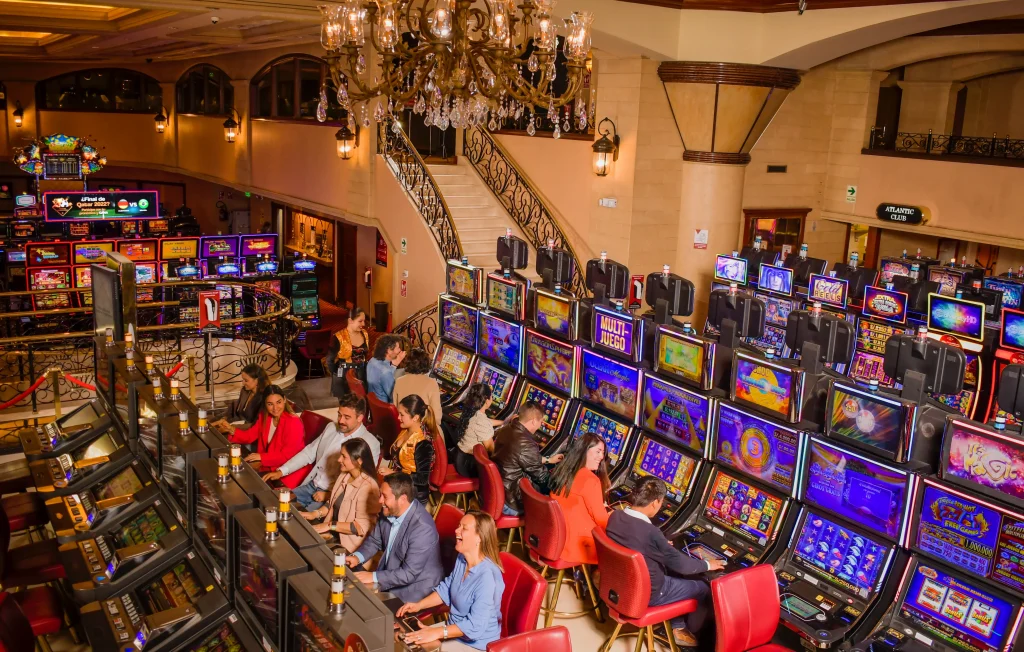
Within the vibrant world of casinos, in which the air humms with enthusiasm and the clinking of tokens fills the space, the role of a game dealer is both essential and captivating. Each day, these experienced experts step into a realm where luck and strategy intertwine, guiding players through the ups and downs of their selected casino titles. From table games like 21 and texas hold ’em to the revolving wheels of roulette, dealers facilitate the action while guaranteeing that every game runs smoothly and honestly.
As the day breaks on another bustling day, a casino dealer prepares to immerse themselves in this dynamic environment. Their duties extend beyond merely dealing the cards or turning a wheel; they are also performers, service providers, and keepers of the game regulations. Each shift brings new obstacles and interactions, making every day unique in the life of a casino dealer. This behind-the-scenes look will examine the day-to-day operations of a casino dealer, showcasing the expertise and insights that make this career both exciting and fulfilling. F8BET CO
The Role of a Casino Game Dealer
A gambling table croupier is at the core of the gaming experience, orchestrating the progress of the play while making sure that players are involved and entertained. Their primary responsibility is to manage the table, which involves distributing cards, rotating the wheel, or handling the chips, depending on the type of game being played. Dealers must possess a thorough understanding of the regulations and regulations governing each game, while also upholding a welcoming and approachable demeanor to improve the gambling atmosphere.
In addition to overseeing the play, croupiers must also monitor on the players and the environment around the table. F8BET This includes monitoring for any indications of cheating, making sure that everyone is adhering to the rules, and resolving any disputes that may arise among players. Effective communication skills are vital, as croupiers often provide explanations about the game’s mechanics and give assistance to those who may be new to casino games.
Furthermore, a croupier’s role extends past just the mechanical aspects of the play. They play a crucial part in creating an Bắn cá H5 immersive experience for the players. This necessitates establishing a connection with patrons, being sensitive to their wants, and often adding an aspect of fun into the game. It’s this combination of skill, vigilance, and interpersonal relationship that makes the role of a gambling table croupier both challenging and fulfilling in the dynamic world of casino games.
Responsibilities and Challenges in Daily Operations
One of the primary responsibilities of a casino game dealer is to supervise the various games available at their table, guaranteeing a smooth and enjoyable experience for players. Dealers must be proficient at dealing cards, managing chips, and maintaining the continuity of the game. This necessitates a deep understanding of the rules of each game, from blackjack to roulette, and the ability to address players’ questions while maintaining the game progressing. Attention to precision is essential, as dealers must monitor bets, pay out winnings correctly, and watch for any cheating or discrepancies at the table.
In addition to supervising the game per se, dealers face challenges such as managing difficult players. The casino environment can be stressful, particularly during high-stakes games, and a dealer must remain composed and professional at all times. They need robust interpersonal skills to handle interactions with players who may be upset about losses or dissatisfied with the game’s pace. Handling these situations delicately is important in creating a positive atmosphere on the casino floor.
Another major responsibility is upholding the honesty of the game. Dealers must be alert and attentive, watching for any signs of collusion or cheating among players. This involves not only a solid knowledge of the games but also an awareness of player psychology. They must also follow the casino’s regulations and procedures, taking part in regular training sessions to keep updated on rules and protocols. Balancing these responsibilities while providing excellent customer service is what makes the role both difficult and rewarding for a dealer in a casino.
Qualities and Skills for Achievement
A successful casino game dealer must possess outstanding communication skills. This includes not just the ability to explicitly explain game rules and procedures to players but also the capacity to connect with them in a friendly and respectful manner. Fostering rapport with guests can enhance the gaming experience and encourage repeat visits to the casino. Effective communication enables dealers to manage tables efficiently while ensuring that players feel valued.
Moreover, robust mathematical skills are essential for a dealer. Quick arithmetic are often required to monitor bets, payouts, and game outcomes in real time. A dealer’s ability to perform these numerical tasks accurately and swiftly adds to the overall efficiency of the game. This skill helps in maintaining the flow of play and in minimizing disputes or misunderstandings with players, which is crucial in a rapid casino environment.
Lastly, an ideal casino game dealer should show integrity and professionalism at all times. Trust is a crucial component of the gaming experience, and players must feel assured that the games are conducted equitably and clearly. A dealer’s commitment to upholding high ethical standards fosters a friendly atmosphere at the table and enhances the casino’s standing. Being consistent in behavior ensures that dealers leave a memorable impression on guests, which can lead to a faithful customer base.

